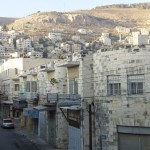
“I like it because it tells people outside of Palestine that we are good people,†said 14 year old Mujahid who took part in making the movie. “It helps to show that we are not terrorists.â€
Read the entire article here at Haaretz.
Life in the West Bank
Articles and news relevant to the West Bank from other sources.

“I like it because it tells people outside of Palestine that we are good people,†said 14 year old Mujahid who took part in making the movie. “It helps to show that we are not terrorists.â€
Read the entire article here at Haaretz.
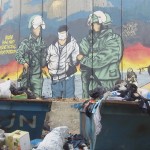
EXCERPT FROM RICH SEIGEL’S WEBSITE:
“Several years ago, as I got sick and tired of all the bad news coming from Israel, and caring deeply about it, I decided that I needed to educate myself thoroughly on the subject. I considered myself fairly well-read and well-informed, but I wanted to know everything. So, I began reading everything I could get my hands on- from both sides of the issue, and talking to everyone I could find who had first-hand knowledge- again from both sides. I fully expected this process to deepen my support for Israel. It did not.”
Read more at Seigel’s website.
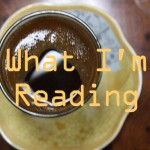
“Traffic Accidents†In Occupied Palestine: Another Form Of Zionist Terrorism
By Reham Alhelsi
Writer Visits MCC, Argues to Vindicate Palestine Perspective
By Katherine Friedman
Daily Nexus, University of California, Santa Barbara
Joint Statement on Anti-Defamation Leagues “Top 10†List
By Students for Justice in Palestine
Margolyes: West End to West Bank
BBC interviews Miriam Margoyles (Harry Potter’s Professor Sprout)
Why Palestine Matters
By Lubna Safi
Indiana Daily Student

Click here to read:
Report of the international fact-finding mission to investigate violations of international law, including international humanitarian and human rights law, resulting from the Israeli attacks on the flotilla of ships carrying humanitarian assistance.
Summary
This report was prepared by the fact-finding mission established by the Human Rights Council in resolution A/HRC/RES/14/1 of 2 June 2010 to investigate violations of international law, including international humanitarian law and human rights law, resulting from the interception by Israeli forces of the humanitarian aid flotilla bound for Gaza on 31 May 2010 during which nine people were killed and many others injured.
The report sets out background information relating to the interception of the flotilla as well as the applicable international law.
The fact-finding mission conducted interviews with more than 100 witnesses in Geneva, London, Istanbul and Amman. On the basis of this testimony and other information received, the Mission was able to reconstruct a picture of the circumstances surrounding the interception on 31 May 2010 and its aftermath. The report presents a factual description of the events leading up to the interception, the interception of each of the six ships in the flotilla as well as a seventh ship subsequently intercepted on 6 June 2010, the deaths of nine passengers and wounding of many others and the detention of passengers in Israel and their deportation.
The report contains a legal analysis of facts as determined by the Mission with a view to determining whether violations of international law, including international humanitarian and human rights law, took place.
The fact-finding mission concluded that a series of violations of international law, including international humanitarian and human rights law, were committed by the Israeli forces during the interception of the flotilla and during the detention of passengers in Israel prior to deportation.
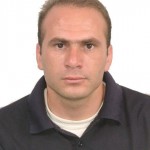
 This piece was written by one of my Advanced English students in Nablus.
This piece was written by one of my Advanced English students in Nablus.
By MAHMOUD BSHARAT
This is what happened in 2003, during the Israeli-Palestinian classes (the second intifada).
My family and I were sleeping peacefully when we heard a very huge blast. Â All the neighbors woke up and started calling each other on the phone, fearful that war had started. Â Like all my neighbors, I opened the door to see what was going on. Â I was astonished to see a thick cloud of dust next to my neighbor’s house.
We were very scared when we saw soldiers clapping, laughing and shouting, “We succeeded, we succeeded!”
We tried to look through the windows, but the soldiers started shooting. Â We returned to our house in horror and waited until the withdrawal of the Israeli tanks and jeeps.
When they left, we went to see what happened. Â The disaster was enormous. Â The soldiers had demolished the neighbor’s house with explosives. Â Most of the neighors’ houses had been damaged, either wholly or partially. Â Only God prevented a true disaster, as all the surrounding houses were crowded and inhabited but the demolished house was empty.
My house is about 100 meters from the demolished house, but the intensity of the explosion threw the door of the neighboring home into my garden. Â Imagine what would have happened if someone was in the garden.
I will never forget that experience.
I will never forgive the occupation.
How frightening that experience was!
How cruel the occupation is!
I hope we get rid of the occupation as soon as possible.

In a week, An Najah will host a Human Rights film festival in Nablus. Â Wanna join me?!
Read original article at Maen News
NABLUS (Ma’an) — The largest university in the northern West Bank will host its first human rights film festival at the end of September, organizers announced on Wednesday.
Starting 26 September and running through the end of the month at the Zafr Masri Theater on the university’s old campus, a series of films will be accompanied with talks and video conferences to organizations in other cities and countries also working in the field of human rights.
Issues of focus, a statement said, will be the Gaza Strip, the Palestinian resistance and Palestinian refugees as well as social and cultural issues such as the rights of women.
The first evening will host staff of the Mental Health Program in Gaza, with subsequent panelists including a South African human rights center and American university students who will tune in and join discussions.
The event is organized by the UNESCO Chair on Democracy and Human Rights at An-Najah National University, directed by Doctor Raed Abu Badawia.
“The festival is part of the continuous struggle of the Palestinian people who seek above all to live in freedom and dignity,” Abu Badawia said in a statement announcing the festival.
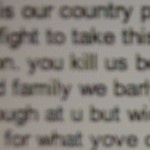
In March 2009, I visited a friend’s home in Palestine. Â Her young daughter, Nadine, wrote the below poems.
our country
you look see feel
but no
u do look
u do see
but u do not feel
stop
pause
and look around
u see up and down
every were no one wants u
just go away.
this is our country place and life
stop talking it away
when its not rifuallly yours.
you kill us
beat us
we fight back for our lifes
but wait
u fight to take this place
just go away.
it happend to u disscrimanasion
but u dont think of it at all
and do the same to us discrimanasion.
you kill us
beat us
but u never feel if we had the same wepinz
we would be wining.
this is not a fair fight
u have food supplize and family
we barly have any just go away.
dont u see what u have done
yove killed children for no reasen.
you through at us
we through at u
but wich one is stronger
yours
just go away.
its our country place and lifes
stop steeling it away
your smiling and happy for what yove done
ITS OUR COUNTRY GO AWAY!
The window
when u look threw the window what do u see
the wind there and the rain for me .
but look closley and see can u find the great wisdom and happyness for u .
look threw the right window that is for u
pick it with goodness and right
look threw the window that is bright.
there is the side of sadness and hate and the side to smile and be happy,
pick the right window when u you look closley you will no the path foe you .
look threw the window that is right for you.
commmunicating peace
peace is the choice u pick in life
how u commmunicate peace
a lovely wonder and wisdom
you need look closly
and hold each others hands
and rome in harmony
and love to eachother
block the bitterness
enter the wonder and wisdom and have a peaceful life.
life
life is a great thing that u can sometimes dought life passess fast and runs long ways the choice of your life is up to you hold it tight so it never gets loose. dont you see what life is what ever u so will effect u pick the right choice.
peace freedom love
peace freedom and love
that what we need want it and make it bigger
bring the peace bring it strong so we can live toghther and get along
we need it yes we do
also if we want the peace the love has to be there
peace oh peace pray for it so we can get along
we need it
we have to love so peace will be a peace and just get along peace.
believe in the peace
if we want peace we have to work and belive for this wonder to be and for peace to be come bigger we have to love and hold on to each other and make the peace a bigger and bigger if we want the the peace we have to live it  and want it we all get toghther make the vive of peace stronger so we can live with happyness peace we need it in life we have to hold is and beliven what is right choice and path to pick. pick it know and have the peace in your heart peace we need it some people dont want it but try to change there mind never never say that this can never happen peace is what we need PEACE.
the goal peace
peace peace thats what we need we want peace yes we do were striving for peace little bye little bigger by bigger the steps get big the steps get small but alalong we succseed out goal peace in the middle east.

CPTnet Digest, Volume 33, Issue 5
A newsletter written by members of the Christian Peacemaker Teams
10 September 2010
At 3:30 p.m. on 24 August 2010, thirty-four soldiers gathered at the alley in front of the CPT apartment. Five soldiers stood at the entrance to the alley to keep the onlookers back while the others broke open shop and apartment doors along the street.

When I wanted to go to graduate school, I wrote a list of my dream schools, created a budget and spoke to my supervisor at work. I never had to consider whether I would be physically able to reach the school due to, say, Canadian restrictions on my movement within the U.S.
The piece explains, “Israeli security officials believe universities in the occupied territories are ‘breeding grounds for terrorists.'” Students in Gaza are not permitted to travel to the West Bank to attend a university.
I currently teach a Video Journalism workshop at An Najah University in Nablus, West Bank. Â My students are committed and inspired to improve their journalism skills. Â They are learning, simply, how to tell a story, as I learned when I attended Medill. Â My students are not terrorists.
“I was shocked and frustrated. I have lost all my dreams because of this Israeli decision,” said Fatma Sharif in the piece. Â She lives in Gaza and wants to go to graduate school in the West Bank.
Watch this Al Jeezera piece to better understand the restrictions placed on students in Gaza.

CPTnet Digest, Volume 32, Issue 11
A newsletter written by members of the Christian Peacemaker Teams
21 August 2010
Every Saturday for the last several months, Youth Against the Settlements has led a nonviolent action “Open Shuhada Street” at the entrance to the Old City of Hebron. On Tuesday, 10 August 2010 the Israeli military and police forcibly welded shut three stores that stand directly behind the area of the weekly Saturday action and across from the gate of an Israeli military base.
A local friend alerted CPT at 2:45 p.m. that the shopkeeper had received a warning that the military would close his shops, and he had half an hour to remove all his merchandise. After arriving at the site, CPTers alerted other internationals, partner organizations and media to come.  A crowd of about
75 people assembled in front of the stores. As they waited, Palestinians removed and hid two of the shop doors.
A little after 4:00 p.m., 30 soldiers and three policemen arrived and pushed their way into the shops where internationals and Palestinians were waiting. The soldiers pulled the civilians out of the shops, scattered much of the merchandise, and dragged a Palestinian behind the gate. Red Crescent of the
International Red Cross came shortly thereafter and examined the Palestinian man who had been injured while being dragged.  They determined he had a brain concussion and advised the police that he needed hospitalization. The police replied they would take the Palestinian man to the jail, question him and then decide if he needed hospitalization.
Declaring the area from the military base to the stores a closed military zone, the soldiers formed two lines and progressively forced the crowd away from the stores being closed. Other soldiers retrieved the two hidden doors and welded shut the three shops. An Israeli policeman pushed the shopkeeper’s large cart of merchandise into one of the stores before the doors were welded shut.  One of the CPTers urged the policeman to bring the cart out of the shop or allow her to retrieve it for the shopkeeper, but the policeman refused. One British man and four Palestinians were arrested.
The British man was released the next morning at 2:30 a.m. on the condition that he immediately leave the West Bank and not return for 15 days. The four Palestinians are now in Ofer Prison. The brother of the man with the brain concussion reported to CPTers that his brother was never hospitalized.